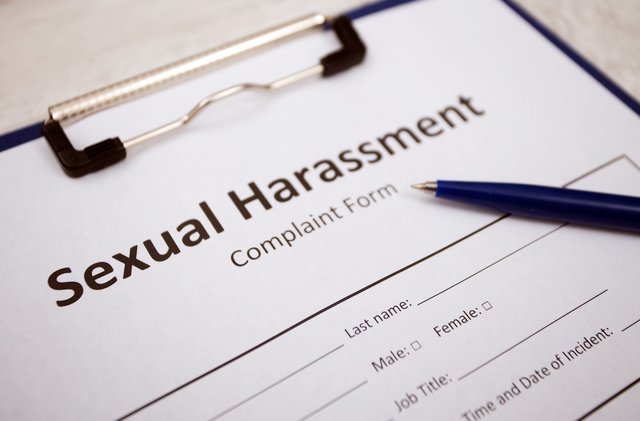Employment Discrimination or Harassment
Employment Discrimination & Harassment
Grace Daniell and her team are dedicated to fighting workplace discrimination in all its forms. From challenging racist hiring practices to ending sexual harassment, it is their goal to ensure that Tennessee workers receive the fair and equal treatment they deserve. If you have questions about your rights when it comes to workplace discrimination or sexual harassment, give Grace Daniell a call today. In addition, you may be able to file a complaint with the Equal Employment Opportunity Commission in Nashville by contacting them at (800) 669-4000.
Employment Discrimination
• Sexual harassment
• Age discrimination
• Race discrimination
• Gender discrimination
• Pregnancy discrimination
• Disability discrimination
• FMLA violations
• ADA violations

Tennessee and Federal law prohibits discrimination and sexual harassment in the workplace. Employers are prohibited from discriminating against an employee or potential employee based on age, sex, race, religion, FMLA, disability or nationality. Employers may not discriminate in hiring practices, termination, or conditions of employment based on any of these protected classifications. In addition, it is unlawful for an employer to retaliate against an employee for making a complaint of sexual harassment or discrimination. There are also laws to protect women from discrimination due to pregnancy. If you feel you have been discriminated against in the workplace, we are here to help.
We are dedicated to fighting workplace discrimination and harassment in all its forms. From challenging workplace discrimination, FMLA and ADA violations, to ending sexual harassment, it is our goal to ensure that Tennessee workers receive the fair and equal treatment they deserve. If you have questions about your rights when it comes to workplace discrimination or sexual harassment, give us a call today. In addition, you may be able to file a complaint with the Equal Employment Opportunity Commission in Nashville by contacting them at (800) 669-4000.

Sexual Harassment
Sexual harassment occurs when someone engages in unwanted sexual behavior towards another person. The harassment must be severe or pervasive to create a hostile, abusive, or offensive working environment for which an employer may be liable. In other words, an isolated comment may not be sufficient to support a claim of sexual harassment.
Generally, repeated conduct is required to prove a hostile work environment, which can include jokes, suggestive comments, physical interference with movement, sexual advances, sexual comments, sexual touching, and pornographic material in the workplace. It does not matter whether your supervisor or co-worker intended the conduct to be harassing. The conduct is evaluated from the perspective of the victim and the conduct must be unwelcomed. An important aspect in the prevention of sexual harassment in the workplace is a strong sexual harassment policy that has been provided to and discussed with all employees.
Most companies have sexual harassment policies. This policy should contain the procedures for reporting sexual harassment, including the person to whom the harassment should be reported. This is usually the human resources manager. In the event of sexual harassment, record the date and time the incident occurred and write a detailed description of what happened. If there is any evidence of the harassment such as witnesses, photos, emails, or text messages, be sure to keep this information as well. It is wise to keep a copy of your statement or complaint and other materials submitted to your employer for your own records.
We have had many clients who were concerned about the ramifications of reporting sexual harassment in the workplace. As employees, they were concerned about retaliation from their supervisors and co-employees, about losing their job, and whether they would be believed by their employers. We are experienced in this area and know how to deal with these concerns. The most important first step in this process is reporting the sexual harassment to your employer in writing and we can help you through this process. An employer is responsible for taking reasonable steps to prevent harassment in the workplace, and to take effective steps to remedy harassment if it occurs.
When a complaint is made, an employer is required to take prompt and appropriate remedial action to stop the harassment. Once you have reported the harassment, an employer is prohibited from retaliating against you because of your complaint. If this occurs, you may have an additional claim against your employer for retaliation under the Tennessee Human Rights Act or Title VII. Please check to see if your employer has a sexual harassment policy and then call us to discuss your rights.
Filing a sexual harassment complaint can be an emotional and daunting experience, but we will help guide you through every step of the process with compassion and sound legal advice. Remember that legally, your employer cannot retaliate against you for filing a report. Be sure to contact us immediately for advice concerning the time limitation for filing your claim which is usually one year from the date of any discrimination or harassment.
CONTACT US
Thank you for contacting us.
We will get back to you as soon as possible
We will get back to you as soon as possible
Oops, there was an error sending your message.
Please try again later
Please try again later
LEGAL REPRESENTATION YOU CAN COUNT ON.
CONTACT
Phone:
(423) 266 3179
Fax: (423) 634 8991
Copyright © 2017 Grace E. Daniell, PC | All Rights Reserved | Powered By
Flypaper |
Privacy Policy
